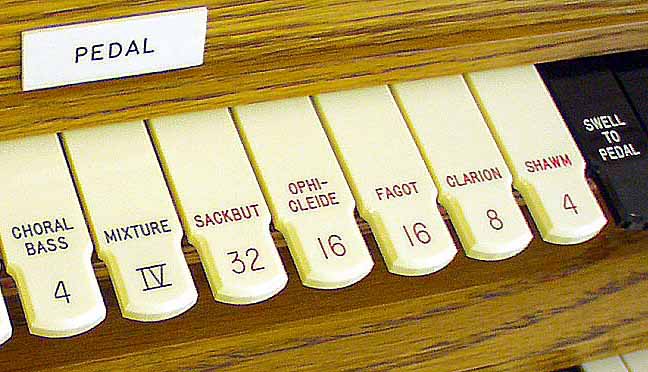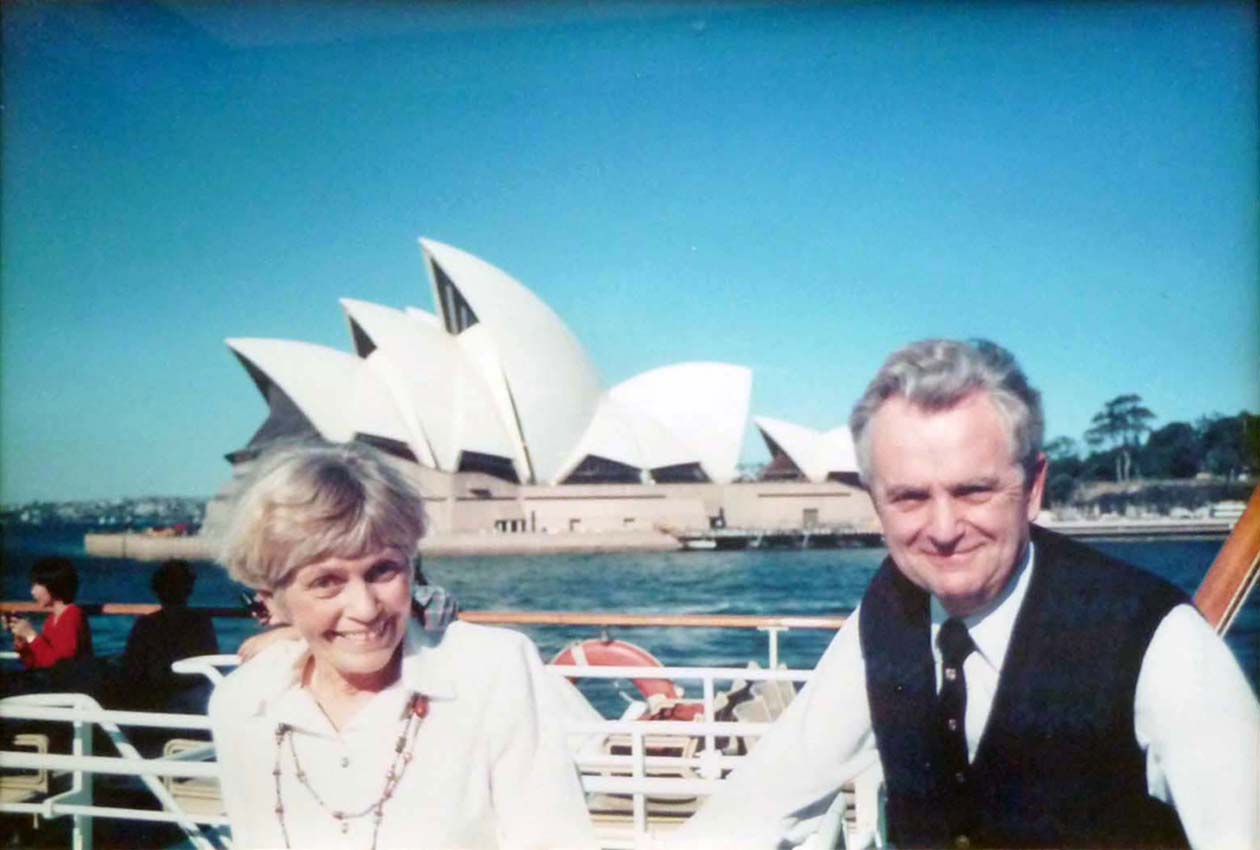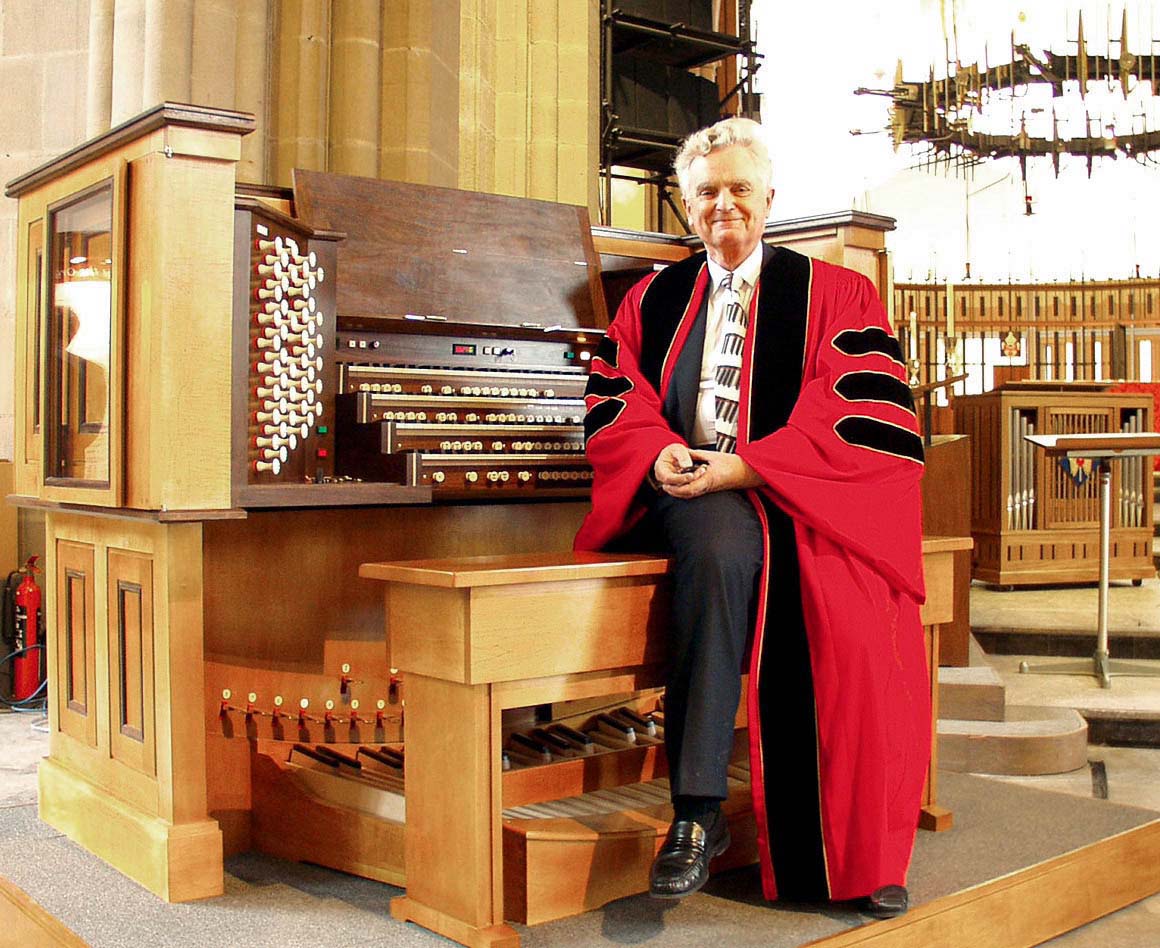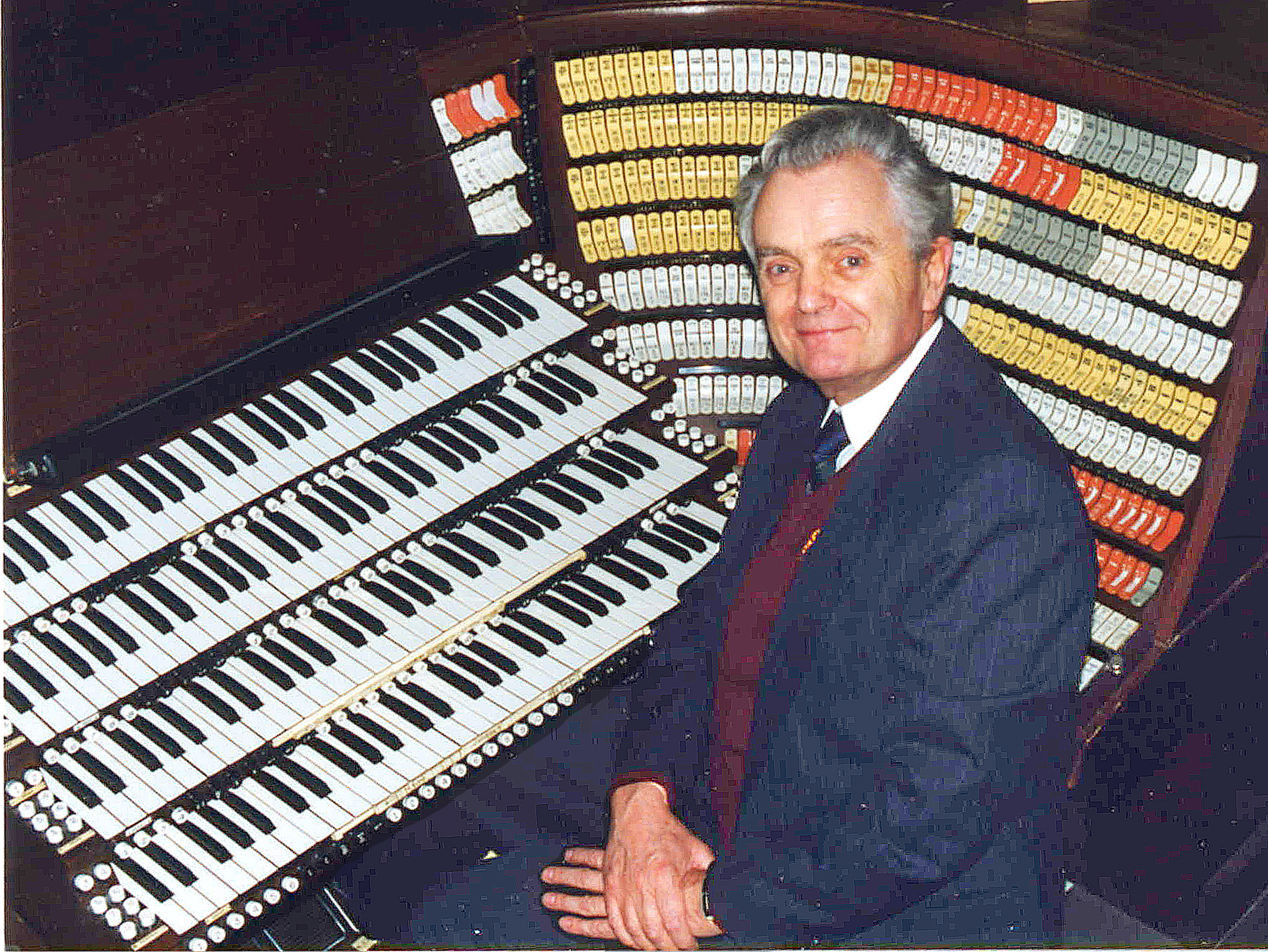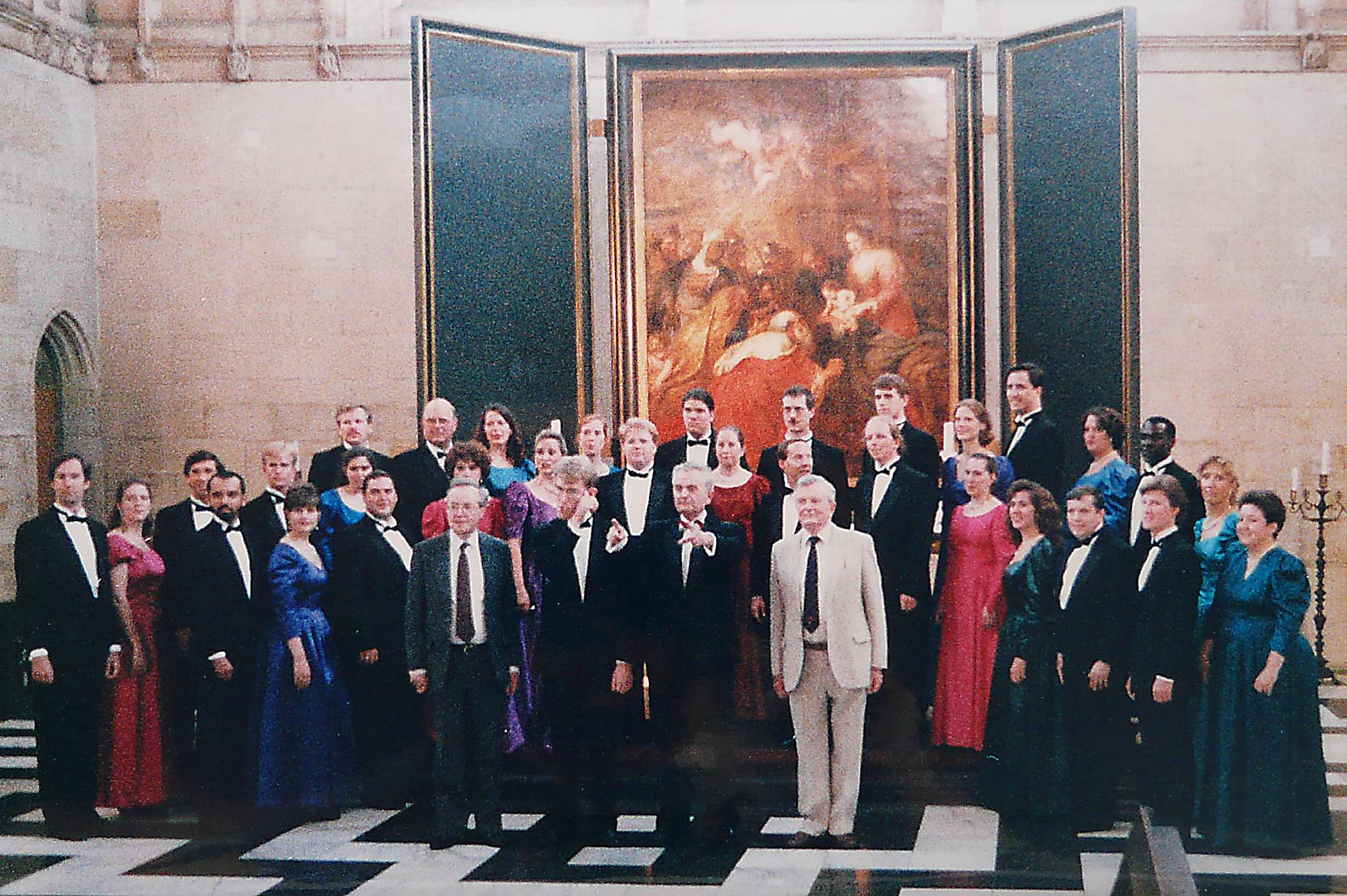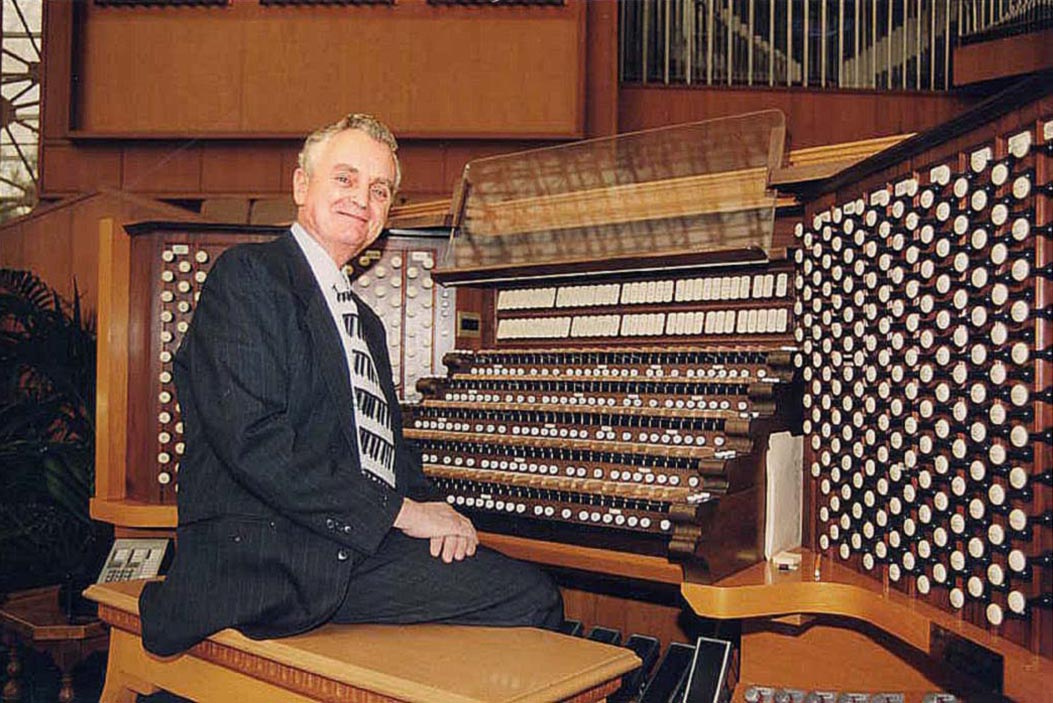How to transform your choir
and fill your stalls
with enthusiastic singers
7. Conducting
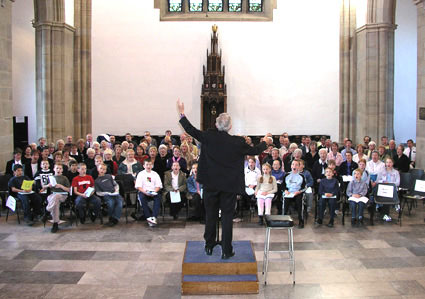
Dr. John Bertalot
Director of Music Emeritus, St. Matthew's Church, Northampton
Cathedral Organist Emeritus, Blackburn Cathedral
Director of Music Emeritus, Trinity Episcopal Church, Princeton, NJ, USA
I’m often asked, ‘How can I conduct a choir rehearsal without knocking myself out? Choirs don’t seem to respond to my conducting so I have to conduct more and more vigorously to get them to sing with my beat, but they still come in late.’

WHO’S TRAINING WHOM?
The answer’s easy! You have to train your choir to come in with your beat. At present they’re training you to conduct more energetically while they’re still singing lethargically. They’re almost thinking, ‘If he wants to kill himself, let him!’
I’ve seen many leading musicians conduct massed choirs’ festivals in cathedrals, and by the end of their rehearsals they’re exhausted having expended so much energy. But when I conducted a festival in Blackburn Cathedral it was the singers who expended the energy, not I. Everything I did with them was geared to get them to respond with active enthusiasm. How was this done?
FULL ATTENTION
1. I needed to capture their full attention immediately. So I greeted them in an upbeat manner, to provoke a lively response: ‘Good afternoon!’ They replied with a mumbled ‘Good afternoon.’ I tried again: ‘GOOD AFTERNOON!’. They suddenly realized that I meant what I said, and so they boomed, ‘GOOD AFTERNOON!’ So there was no point in starting the rehearsal until I had caught everyone’s full attention, for the message they would have received would be ‘I only expect some of you to respond to what I say.’
A choir festival is a great opportunity for teaching choirs (and also demonstrating to their choirmasters) how quickly and easily they can raise their standards. And it all stems from the conductor demanding that everyone listens attentively and responds immediately to what he asks.

MEAN WHAT YOU SAY
When your choir doesn’t respond to your greeting or to your instruction, repeat it with focussed intent so that they will realize that you do mean what you say. So many choirmasters give an instruction to their choirs and accept their initial response, which is less than they had hoped for. No! If your choir doesn’t do what you ask of them, repeat your instruction to show that you really mean what you say.
By the way, there’s a fundamental difference between repeating an instruction to a choir because they’re not listening, and repeating an instruction to singers who are listening. Many fall into the first category. This could be illustrated by a choirmaster pleading, ‘Please stop talking . . . Will everyone listen to me, please? . . . How many more times must I ask you to listen to what I’m saying?’ The choirmaster should have said, ‘When everyone is listening, we’ll start the practice!’ and waited silently with an encouraging look on his face until he, or she, had their full attention.
ORIGINAL SIN ISN’T ORIGINAL!

All of us try to get away with less than is asked of us until we are challenged. For example, how many of us, when driving, suddenly slow down when we see a police car in our rearview mirror? Until we were challenged we tried to get away with driving too fast. It’s human nature. It's un-original sin! We all tend to get away with it, whatever 'it' is. Therefore our singers also need to be challenged to do better, and it begins during the first few seconds of every rehearsal.
When I conducted a world-famous cathedral choir in California a few years ago only half the 80 singers listened to my first instruction. I was surprised for they were a very good choir. So I immediately showed them that I meant business by saying firmly, ‘Ladies and gentlemen, we have a lot of work to do this evening, and so it would help us all if I give my instructions only once!’ They immediately sat up straight, both physically and mentally, and we enjoyed a thoroughly fruitful rehearsal. In fact everything went so well on that evening that I was asked to conduct there again!
THE FIRST FEW SECONDS …
It’s the same with every rehearsal you take; you must show your singers immediately that it is they who must try harder, not you. Trying hard in five minutes’ time is too late – they must do it NOW! The first few seconds of a rehearsal determine how well the whole rehearsal will go.
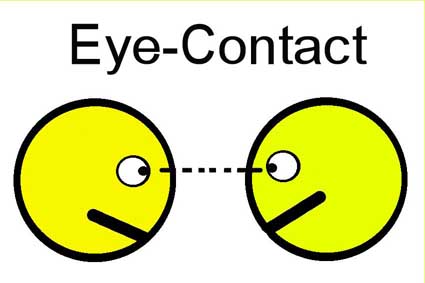
2. And so once I had their full attention at the Blackburn Festival, I asked the singers to stand up together. (If they can’t stand together, they’ll never sing together.) ‘In a minute I’ll ask you to stand up together; so put both feet on the ground and watch my hand.’ I made eye contact with every singer, and then with a clear gesture, without saying anything, I got them to stand. I held them there for a few seconds and then, with another clear gesture (and without saying anything) got them to sit down again.
It wasn’t wholly unanimous so I asked them, ‘Was that really together?’ (‘No!’) ‘Let’s do it one more time then.’ In other words, not only was I conditioning them to respond to my gestures (which would later bear fruit when I conducted their singing) but I was also showing them that I expected them to reach even higher standards. (That’s the whole point of rehearsals.)
3. I then got them to sing unaccompanied one verse of a vigorous hymn, Light’s abode. Their first attempt was lethargic – four ponderous beats per bar. I immediately stopped them and said, ‘No, sing it with two vigorous beats per bar, like this!’ And I sang a line to them. They got the idea, and suddenly realized that they were singing far better than they’d ever done before.
Don't have the hymns accompanied by the organ in rehearsals for it's the organist who is working hard and the singers are only tagging along.The singers don't have to try hard if there's an organ there to back them.
And so our unaccompanied rehearsal ‘took off’, for they had experienced that concentrating hard and responding resolutely bore exciting fruit.
Another thing to realse is that most church choirs are not used to being conducted and so, however talented you may be in this direction, you have to show them what you're there for.
When I was conducting a massed choirs' festival in Southwell Minster there came a moment when the singers weren't responding as well as I expected them to, so I pretended to get a little cross and asked, 'Why do you think I'm here?' A boy in the front row said, 'Because you're getting paid!!'
Of course at intervals during the Blackburn practice I had to rehearse them again in responding to my beat: ‘Did you all come in together with my beat, or after it? Let’s try it again.’ But I didn’t make the fundamental mistake, which so many festival conductors seem to make, which is, ‘They’ll come in better if I conduct more vigorously.’ No. Once you’re on that road (‘They’ll only respond if I try harder!’) they’ll let you. Their singing will remain below par, and you’ll get your workout.
Singers respond wonderfully when they are challenged constructively. I’ve just described how this can so easily be achieved.
Try it for yourself.
© John Bertalot, Blackburn 2013


